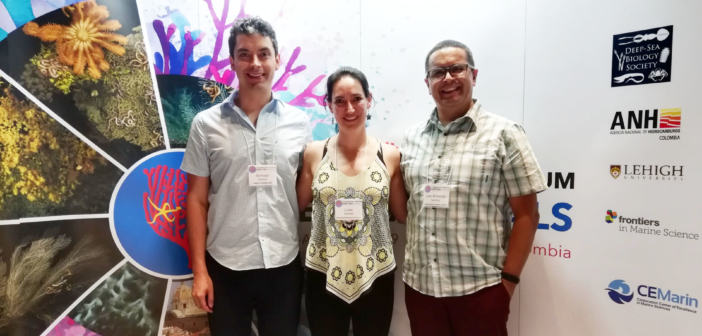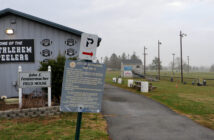Lehigh students and Professor Dr. Santiago Herrera dove into their studies at the International Symposium for Deep Sea Coral in the coastal town of Cartagena, Colombia, on an academic trip this summer.
Herrera, a professor of practice of biological sciences, worked for two and a half years to organize the symposium, which was set in his home country of Colombia from July 29 – Aug. 2.
The symposium has been held every three years since 2000 and has taken place all over the world, including in Canada, Germany, Netherlands, New Zealand and the United States.
Herrera completed his undergraduate and master’s degrees in Colombia before he moved to the United States to earn his doctoral degree.
This was the first year the symposium was hosted in a developing Latin American country.
Herrera said there is a lot of research and interest in marine biology, but deep sea corals are not easy to study, because it requires advanced technologies, such as submersibles and large ships to properly examine them. However, he said there is a growing interest in developing countries, and particularly in Colombia.
Herrera brought several Lehigh students to Colombia to participate with financial support from the Office of International Affairs.
Doctorate candidates Katie Foley, ’19, ’20G, and Luke McCartin, ’19, ’20G, were two of the students Herrera invited.
Foley, who is looking to get her doctorate in biology with a concentration in ecology and evolution, joined Herrera’s lab last spring.
“I got an email two weeks before the symposium asking if I wanted to go to Colombia, to which I responded, ‘absolutely,’” she said.
At the symposium, Foley said she was particularly fascinated by companies working with remote-operated vehicles, which is essentially like sending robots to the bottom of the ocean.
Foley was intrigued by a speaker at the symposium who discussed how to differentiate species when there aren’t many clear guidelines in place.
“Everyone thinks that a species is a species and there’s not a lot of grey area, but a lot of species are actually really not defined all that well,” she said.
McCartin, a doctorate student studying biology with concentrations in evolution and behavior, spent the past few years as a research assistant in a deep sea ecology lab at the Woods Hole Oceanographic Institution in Woods Hole, Massachusetts.
His doctorate adviser at the institution was Dr. Herrera’s doctorate adviser when he was a student.
“The lab I worked in at the institution did a lot of deep sea coral research, leading me to come to Lehigh to work with Dr. Herrera, and go to the symposium over the summer to present our research,” McCartin said.
McCartin had researched deep sea corals for roughly two years before he attended the symposium with Herrera. He said one of his favorite parts of the trip was meeting a lot of people whose papers he had read in his studies.
“It was really cool to actually have the opportunity to meet a lot of experts in the field that I wouldn’t have had the opportunity to meet otherwise, because they were just very far away,” McCartin said.
McCartin said he was amazed by how Herrera and other symposium organizers were able to put together the five-day event.
“They also chose an incredibly cool place, organizing buses from the symposium to the old part of the city or the walled city in Cartagena, Colombia,” he said. “We would go out for dinner and mingle with other deep sea scientists.”
Herrera also coordinated for a band to open the symposium with traditional Colombian music to incorporate Colombian culture.






Comment policy
Comments posted to The Brown and White website are reviewed by a moderator before being approved. Incendiary speech or harassing language, including comments targeted at individuals, may be deemed unacceptable and not published. Spam and other soliciting will also be declined.
The Brown and White also reserves the right to not publish entirely anonymous comments.